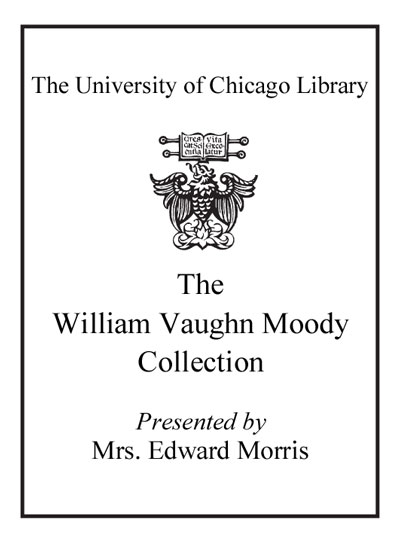Review by Booklist Review
In the fourth volume of her galvanizing unexpurgated diaries, Nin, now in her mid-thirties, achieves a deeper understanding of herself, her need to keep her infamous diaries, and her complex and demanding relationships with Hugo, her loyal husband; Henry Miller, the cosmic force in her fervent universe; and Gonzalo More, her most sensual and passionate lover. As Nin tirelessly and eloquently analyzes each man and what he means to her, she shares luminous and provocative thoughts on the perversity of jealousy, the mystery of eroticism, the unruliness of love, and the gnawing need to write, to at least make sense, if not art, out of experience. As Nin matures and her journal deepens, the magnificence of her literary achievement emerges. Nin is the Proust of diary-keepers, and the creator of a revolutionary psychological documentary of a truly remarkable and unsettling personality. --Donna Seaman
From Booklist, Copyright (c) American Library Association. Used with permission.
Review by Publisher's Weekly Review
A preface by Rupert Pole, surviving widower of the bigamous diarist, who already had a legal husband when they married, contends that she wrote impulsively, at "white heat." The evidence is that she often paused to improve upon life, which in the two years, spent mostly in Paris, covered in this volume, consisted largely of cadging from her complaisant banker husband, Hugh Guiler, to support her lovers. One was the gaunt, bald sexual athlete and expatriate novelist, Henry Miller, who by then had parted from his wife, June. Another was the swarthy Communist activist Gonzalo Moré, whose appetite for sex overwhelmed his passion for politics, and whose slovenly wife encouraged his income-producing infidelity. Nin betrayed all three men, even on days (and nights) when she bedded them all. In her middle 30s, her erotomania left her little time for much else, but she managed to write pornographic (and then censorable) short fiction and reams of what later skeptics called a "liary." She was "a true Catholic," Moré told her. "You love the sin and absolution and regrets and sinning again." Yet she had few regrets but the unpublishability of her diaries. Her love seems entirely narcissistic in the manuscript volumes she filled over 52 years. But even so, her literary talent and the sensual intensity of her emotional life sets some of the pages in her diaries on fire. The first extracts, published in 1966 at age 63, established her (although she edited out some sensitive matter) as a cult figure. Since her death, Pole has been releasing the original diaries, Nearer the Moon, encompassing volumes 53 through 60. "I dream, I kiss, I have orgasms, I get exalted, I leave the world, I float, I cook, I sew, I have nightmares, I follow a gigantic creative plan," she claims. Her self-description says it all. One would hardly know that Nin was living in a France on the brink of war. Photos not seen by PW. (Nov.) (c) Copyright PWxyz, LLC. All rights reserved
(c) Copyright PWxyz, LLC. All rights reserved
Review by Library Journal Review
The origin of Nin's literary acclaim is arguably her Diary, "Journal of Love" series, which has received more attention from the reading public than any of her other writing efforts. This fourth volume of that diary following Fire (1996), Incest (1993), and Henry and June (1990; all Harcourt) covers the years 1937 to 1939. Her crucial relationship with Henry Miller continues during these years, while she lives out a love affair with Gonzalo More, a Peruvian revolutionary and musician. It is through Gonzalo, a proponent of Marxist ideology, that the apolitical Nin confronts political thinking, without committing herself to a particular trend. Meanwhile, she maintains her relationship with her husband, Hugh Guiler. At the outbreak of World War II she leaves for America. She will never live in Paris again. This episode of the diary reveals a more mature Nin. As a necessary sequel to the other volumes, this title is recommended for academic and comprehensive public libraries with strong women's studies collections.Ali Houissa, Cornell Univ., Ithaca, N.Y. (c) Copyright 2010. Library Journals LLC, a wholly owned subsidiary of Media Source, Inc. No redistribution permitted.
(c) Copyright Library Journals LLC, a wholly owned subsidiary of Media Source, Inc. No redistribution permitted.
Review by Kirkus Book Review
More verbal onanism in the fourth and last installment of A Journal of Love, which demonstrates that even an unexpurgated diary can be boring (especially sans the high prurience quotient of the scandalous couplings in the earlier volumes Incest and Henry and June). This time the players are Henry (Miller, still) and Gonzalo Moré, a passionate Peruvian, in a dédoublement on which Nin positively mainlines, intoxicated by the audacity and the risk of keeping them both (and keeping them apart from each other . . . and the others). Keep them she does, on a seemingly endless shoestring provided by cipher-husband Hugh Guiler, and also by their various consorts (mostly Art in Miller's case, Communism and Helba [platonic by now] in Gonzalo's). ``I nurture their egotism,'' Nin interprets grandly, though she doesn't shrink from cataloguing her outlay of francs-per-month-per-man for food and rent. Her vague dream-picaresque purveys little actual narrative; Nin writes to evade the demons of solitude, in swirls of preoccupation with herself in all of her sacrificial, sensual, and poetic wonder (``I know I have as great an ear for nuances as Proust . . .''). Jealousy--of her lovers' lovers, past and prospective--is the ``disease'' she admits to, however, as she communes with her diary. Breathlessly: ``I feel a malaise until I write certain things down. . . . Deliverance!'' Therapy, then, conducted by a virtuoso solipsist in an airless crucible of amour-propre.
Copyright (c) Kirkus Reviews, used with permission.
Review by Booklist Review
Review by Publisher's Weekly Review
Review by Library Journal Review
Review by Kirkus Book Review

